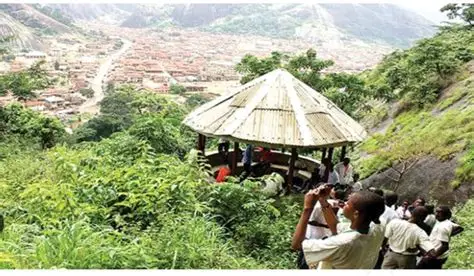PROMOTING
Sustainable tourism has emerged as a critical pillar in the global discourse on environmental conservation, cultural preservation, and inclusive economic development. For a country like Nigeria endowed with diverse ecological zones, rich cultural heritage, and untapped tourist destinations the potential of tourism as a driver of sustainable development is immense. However, the effectiveness of government policies in promoting sustainable tourism remains a subject of debate. While several policy frameworks have been developed, their implementation, consistency, and overall impact raise significant concerns.
Policy Frameworks and Strategic Intentions
Over the past two decades, the Nigerian government has articulated various strategies aimed at enhancing tourism. Key among them is the National Tourism Development Master Plan (NTDMP) developed with the support of the United Nations World Tourism Organization (UNWTO) and the United Nations Development Programme (UNDP). The plan aims to provide a roadmap for sustainable tourism development by improving infrastructure, encouraging private sector investment, and strengthening institutional frameworks.
Other relevant initiatives include the Vision 20:2020 and the Economic Recovery and Growth Plan (ERGP), both of which identify tourism as a potential growth sector. Additionally, states like Cross River, Lagos, and Osun have developed localized policies and festivals (e.g., Calabar Carnival, Lagos Tourism Master Plan, Osun-Osogbo Festival) that promote cultural tourism in sustainable ways.
However, the presence of a policy on paper does not necessarily equate to effective implementation or outcomes. The gap between policy articulation and execution remains a major challenge.
Challenges Undermining Policy Effectiveness
- Weak Institutional Capacity and Funding Constraints
Many tourism related institutions in Nigeria lack the financial and technical capacity to implement sustainable tourism policies. For example, environmental impact assessments are often bypassed in favor of short-term economic gains. Underfunded agencies like the Nigerian Tourism Development Corporation (NTDC) struggle to enforce regulations or promote best practices. - Poor Infrastructure and Security Concerns
Sustainable tourism relies heavily on reliable infrastructure roads, electricity, sanitation, and transport systems. In many parts of Nigeria, especially in rural or ecologically sensitive regions, infrastructure remains underdeveloped. Furthermore, insecurity due to terrorism, banditry, and communal conflicts significantly undermines tourist inflow and confidence. - Limited Community Involvement
Sustainable tourism thrives when local communities are actively involved and benefit from the process. However, many government-led initiatives are top down, with limited stakeholder engagement. This results in local apathy, mismanagement, or even resistance, as seen in areas where tourism displaces communities or disrupts cultural norms. - Environmental and Cultural Neglect
Despite sustainability being a key focus, some tourism development projects have led to environmental degradation or commodification of cultural practices. Natural sites such as Erin Ijesha Waterfalls or parts of the Niger Delta face threats due to poor regulation and environmental oversight.
Emerging Opportunities and Positive Trends
Despite the challenges, there are glimmers of progress. Nigeria’s engagement with international bodies like the UNWTO and ECOWAS provides a platform for policy benchmarking and technical assistance. States like Lagos and Cross River are beginning to integrate sustainability into their tourism branding, focusing on eco-tourism, responsible travel, and heritage conservation.
Moreover, the growing youth population and digital innovation offer tools for promoting local tourism through apps, blogs, and virtual experiences, potentially reducing the environmental footprint of tourism and encouraging domestic travel.
Recommendations for Improved Effectiveness
- Strengthen Institutional Frameworks: Revamp agencies like NTDC with greater autonomy, funding, and accountability mechanisms to drive policy enforcement.
- Enhance Public-Private Partnerships: Encourage investment from private entities in sustainable tourism infrastructure while ensuring compliance with environmental standards.
- Promote Community-Based Tourism Models: Involve local communities in decision-making, revenue sharing, and preservation efforts to ensure inclusive growth.
- Improve Data Collection and Monitoring: Establish systems to track tourism impacts on the environment and communities, using data to refine and adjust policies.
- Integrate Security and Tourism Policies: Collaborate across sectors to ensure that tourist destinations are safe and accessible.
Conclusion
Government policies in Nigeria demonstrate an awareness of the importance of sustainable tourism. However, their effectiveness is currently limited by structural, financial, and implementation challenges. For tourism to truly contribute to sustainable development in Nigeria, policies must move beyond rhetoric into action prioritizing community engagement, environmental stewardship, and long-term planning. The path to sustainable tourism is complex, but with strategic reforms and collaborative efforts, Nigeria can unlock the full potential of its tourism sector while preserving its rich natural and cultural heritage for future generations.






